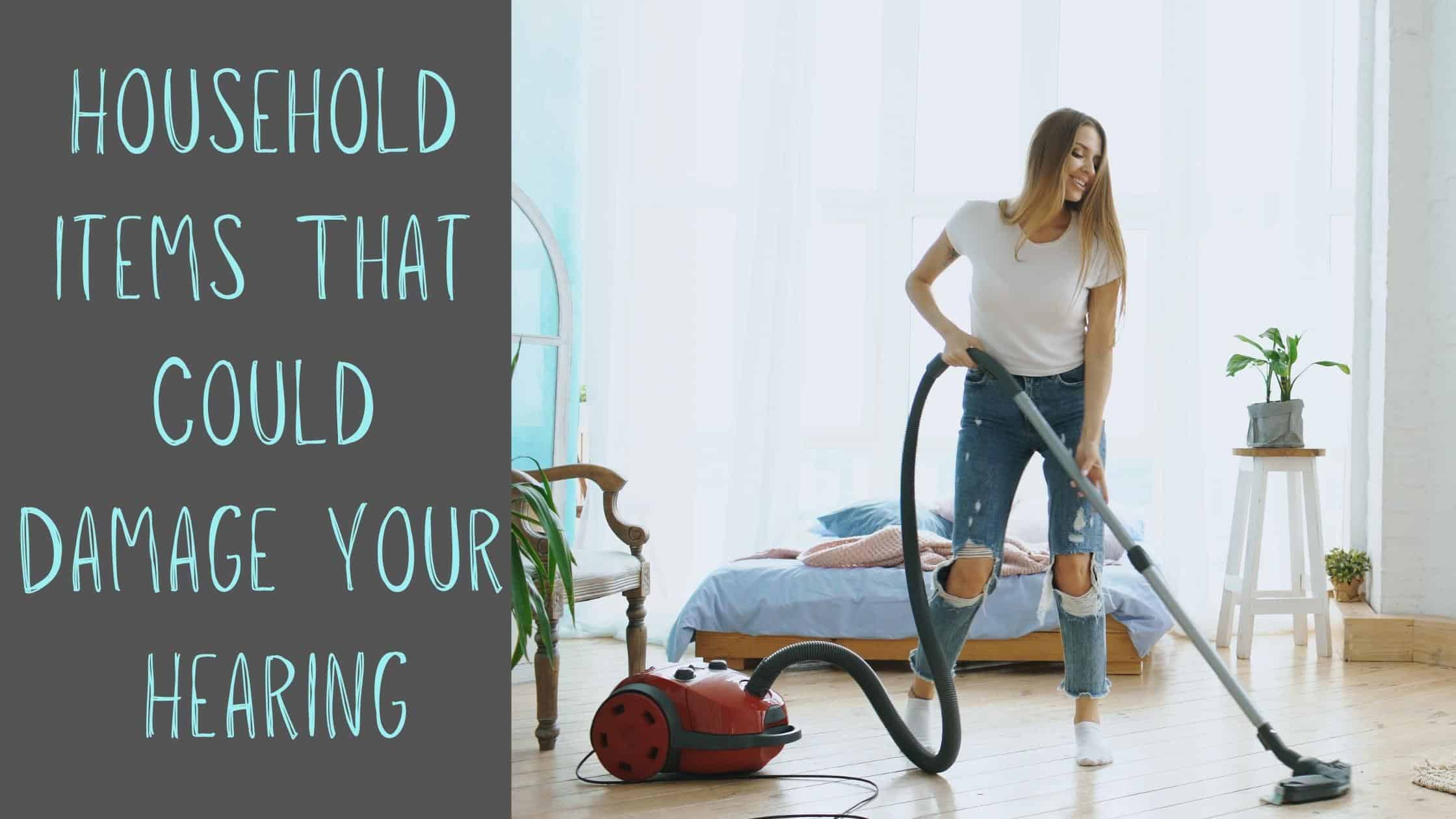
When you think of the risks of hearing damage, what comes to mind? If your mind goes immediately to concerts, factories, and firing ranges, you are not alone. These very loud settings are the most dangerous places for your hearing. Yet, knowing these dangers means that you might be more likely to wear hearing protection in these settings, as well. Although very loud sounds pose a risk in a short amount of time, relatively quieter sounds can cause hearing damage when they are experienced for too long a duration. This delicate balance of volume and duration can make it difficult to tell how and when your hearing is at risk. The following household items can emit sounds that stretch into the range that risks damage. Keep in mind that using them for a few seconds or minutes should not pose a problem, but extended use is the real danger.
Household Appliances
A few household appliances can get into a dangerous decibel level that poses a threat to hearing. Your blender can reach up to 100 decibels, sufficient to damage your hearing in a matter of 15 minutes. Although many blenders are quieter than this and few of us use the blender for a straight 15 minutes, this precaution is useful to keep in mind. Particularly those who work in a café or coffee shop should consider hearing protection on the job. Similarly, hairdryers can emit up to 90 decibels of sound. This level can be experienced for somewhere between 2 and 4 hours, making it unlikely that a household user will experience any damage. However, a full shift working in a salon can make it possible to experience real damage to your hearing over the course of a shift. As you can see, household items tend to be less of a risk in households than they do on the job.
Lawn Care
Many of the machines used in lawn care can reach dangerously high decibel levels. In this case, a homeowner with a large lawn might cross the time threshold into the range of danger. Lawnmowers are among the loudest household items, reaching up to 90 decibels. As we know, that volume can be experienced between 2 and 4 hours without damage, but a very large lawn might require more than 4 hours of care.
If yours is one of these large estates, you might want to consider wearing noise-canceling earmuffs while you mow. By all means, don’t wear earbuds while mowing the lawn! The combination of the noise from the lawnmower and the added sound of the audio you play through your devices might add up to serious risk. Other lawn care tools can pose a risk, as well, including weed whackers, leaf blowers, and snow blowers. If you plan to spend a full day caring for the lawn, it is best to wear hearing protection of some kind.
Earbuds
Remember those earbuds you considered using while mowing the lawn? These are possibly the most dangerous objects in your home when it comes to your hearing. Although European standards have limited the output of smartphones to 100 decibels, these regulations are not in place in the United States, meaning that smartphones can emit up to 115 decibels, enough to damage your hearing in a matter of minutes.
The true risk of earbuds is the tendency to use them for a long time. Consider a feature film that lasts around 2 hours. You should not raise the volume above 90 decibels for that length of use. The problem gets even worse with something like podcasts or audiobooks that a person can potentially hear for hours on end.
If you find yourself using your earbuds for an extended period of time, it is crucial to lowering the volume to somewhere around 70 percent of the maximum volume. This level varies according to the device, so take a moment to explore the safe range for your particular smartphone, tablet, or computer.
With these considerations in mind, you should be able to resume using earbuds without concern. As an alternative, you might want to consider projecting the sound acoustically through speakers. Others in the vicinity will be more likely to ask you to turn down the volume if you approach dangerous volumes!
If you are concerned about your hearing abilities, it is important to have an annual hearing test! Contact us today to schedule a consultation and to learn more about healthy hearing practices.
